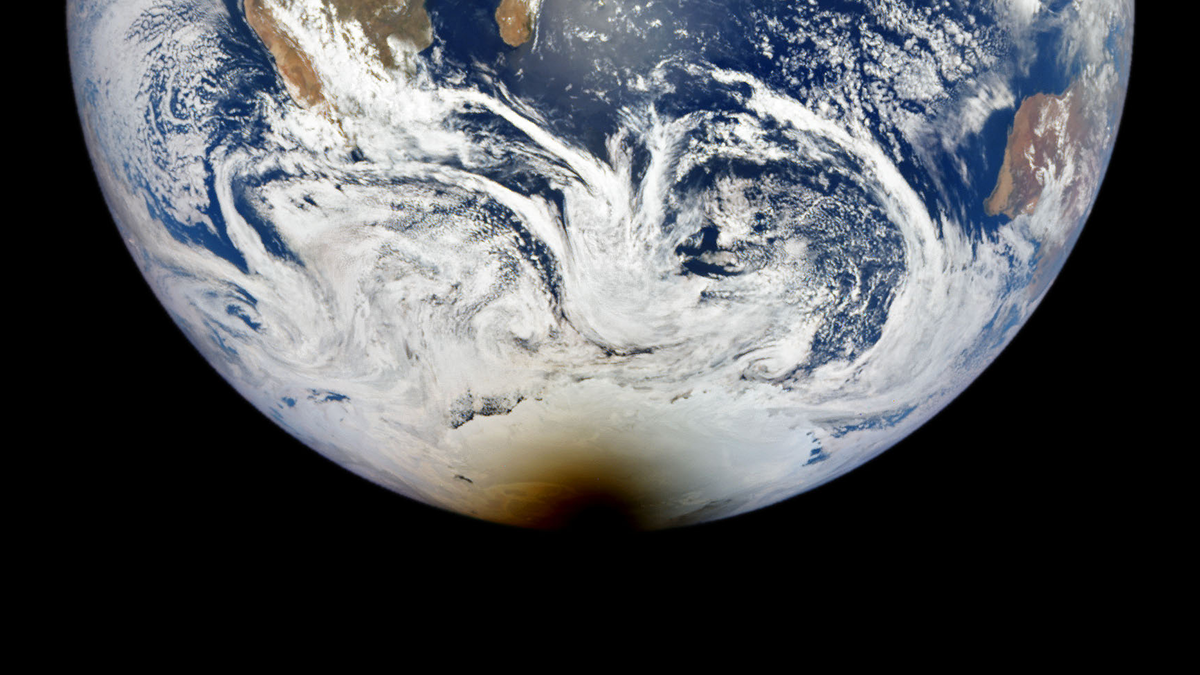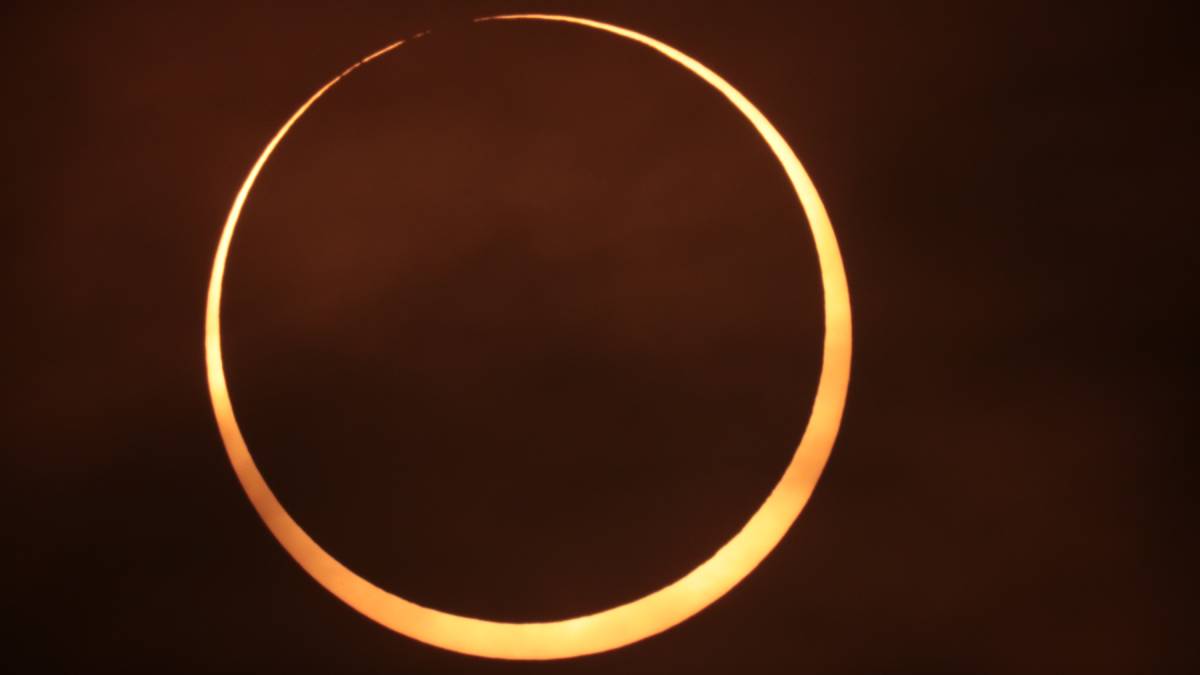Operadores de rádio amadores que estudam a física espacial e a atmosfera superior investigaram a resposta da ionosfera ao eclipse solar anular de 2023 usando transmissões de ondas curtas.
eclipses
The Small Self and the Vast Universe: Eclipses and the Science of Awe
What is awe? What does it feel like? Why does it exist? And what is it about a total solar eclipse that seems perfectly designed to provoke it?
Total Eclipse of the Sun
Things are looking up as millions of North Americans prepare to be dazzled by a celestial spectacle.
Eclipse Science Along the Path of Totality
When a total solar eclipse sweeps across the United States on 8 April, scientists and enthusiasts alike will be there to document it.
The End of the Eclipse
Scientists are studying how the Earth–Moon distance has changed over time, and what effect that change might have had on our planet. Future changes will extinguish total solar eclipses entirely.
Low-Level Clouds Disappear During a Solar Eclipse
Cumulus clouds rapidly dissipate as the land surface cools, a finding that has implications for Sun-obscuring geoengineering efforts.
Solar Eclipses May Initiate Disturbances in Geospace
The statistical evidence from 21 years of data suggests that a solar eclipse may trigger a geomagnetic substorm, which is a disturbance in the Earth’s magnetosphere and ionosphere.
Registros de eclipses fechan erupciones volcánicas de los siglos XII y XIII
Registros antiguos de lunas oscuras y lunas de sangre ayudan a los científicos a vislumbrar erupciones pasadas y sus efectos en el clima global.
Ham Radios Crowdsourced Ionospheric Science During Eclipse
Amateur radio operators who study space physics and the upper atmosphere probed the ionosphere’s response to the 2023 annular solar eclipse using shortwave transmissions.
Eclipse Records Pin Dates of 12th and 13th Century Eruptions
Ancient accounts of dark and blood-red moons help scientists peek at past eruptions and their effect on global climate.










